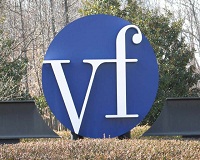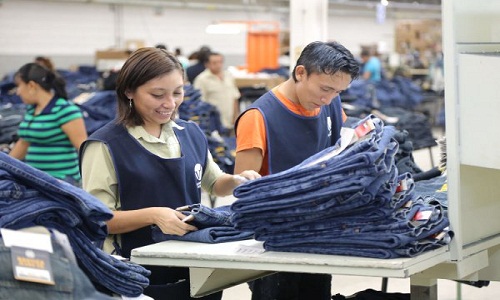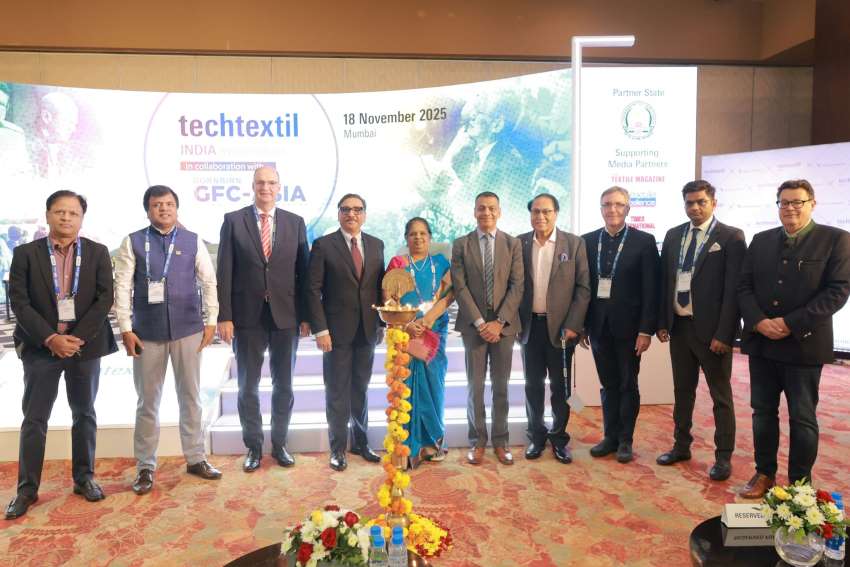"With annual sales of $12.4 billion, VF Corp has the potential to bring in dramatic shift not just in its operations but across the value chain. In order to do so, the company created a complex initiative called ‘Made for Change’, outlining aspirations for advancing environmental and social improvements across its business, portfolio of brands, global supply chain and communities worldwide. Letitia Webster, VP-global corporate sustainability at VF Corp, opines the mission began in 2011 when Eric Wiseman, then chairman of VF, asked her to start the corporate sustainability program for the company. Initial goals were set and achieved."

With annual sales of $12.4 billion, VF Corp has the potential to bring in dramatic shift not just in its operations but across the value chain. In order to do so, the company created a complex initiative called ‘Made for Change’, outlining aspirations for advancing environmental and social improvements across its business, portfolio of brands, global supply chain and communities worldwide. Letitia Webster, VP-global corporate sustainability at VF Corp, opines the mission began in 2011 when Eric Wiseman, then chairman of VF, asked her to start the corporate sustainability program for the company. Initial goals were set and achieved. The company set a carbon reduction goal of 5 per cent in five years and they actually reduced carbon footprint to about 12.5 per cent, saving millions of dollars.

With sustainable thought process in mind, VF, with brands such as Wrangler, Lee, Vans, The North Face and Timberland, came to the conclusion that in order to truly become a much more sustainable company and industry three things needed to be achieved: moving the linear model to the circular business model, understanding the material impacts that were driving and impacting the business and getting all of VF’s 65,000 associates and the millions of consumers who buy its products to help in moving in the right direction. Webster assed sustainability and responsibility became value driver and by creating a value, facilitating responsibility in the marketplace, VF will then create transformational impact. That is really fundamentally at the core of this strategy.
Made for Change
Fundamentally, VF Corp believes environmental waste is financial waste. They have set out a goal that by 2020 all of their distribution centers will be zero waste. The company is saving significant amounts of money at every single distribution center that moves to zero waste. They want to bring these results to the ultimate consumers as well. In order for us to move as an industry, as a planet, as a world—and everything that is important to us—if we are going to move in that direction, it has to make business-sense, Webster said. This can’t be a philanthropic effort, it absolutely has to fundamentally be embedded into business strategy and business plans and help drive the business—and help it be more efficient and reduce risk. Overall, VF has committed to reducing its global environmental footprint by 50 per cent from farm to door by 2030, which is about science-based targets.
VF is working closely with supply chain partners and our suppliers to announce something next year. The second aspect is focussed on materials. VF was a founding member of Sustainable Apparel Coalition, which developed the Higg Index, a standardised methodology for measuring the environmental impact of materials. According to Webster, the company integrated that into its material selection process and is now using it to help brands identify more sustainable materials.
Circular business models
The company is planning to enhance the use of used clothing or renting clothes. The company itself is looking at renting, since it does have products that are high value that consumers don’t need to buy because they use them one or two times a year. A number of pilots are being explored and could be launched in the next few months. The second area of focus of the Made for Change initiative, dubbed Scale for Good, looks at what’s really impacting the business and where VF has some of the greatest impacts. In addition, VF is looking at sustainable agriculture practices, reforestation and conservation efforts. On the materials end, a key is the use of recycled materials following the Higg model. The company has a goal to increase the amount of recycled materials, specifically nylon and polyester, by 50 per cent.
The third pillar, according to Webster, is around work and wellbeing, noting that the apparel industry is often not recognised as the best when it comes to work and wellbeing and VF is in a better position to bring a change. Through its responsible sourcing efforts, they are making tremendous headway in trying to create and share best practices in the industry and improve the way that workers are treated and elevate those best practices through supply chain.












